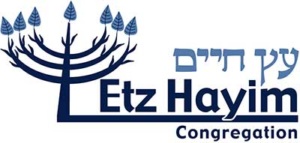Instructions for counting the omer are found on our Omer Overview Page. You can find the specific blessing for today at chabad.org.
We’re dedicating a new Sefer Torah on the first day of Shavuot. In honor of this joyous occasion, we’re using the counting of the Omer to take a whirlwind trip through the Torah
Today’s portion is Eikev from the book of Deuteronomy. Today’s insight was generously provided by Linda S.
Verses of note: Deuteronomy 9:10; 9:17; 10:16; 11:10-11
What caught your attention in this parashah?
Leading the people in Moses’ absence, Aaron gave orders to make the golden calf and to set up an altar before it (Exodus 32.2-5); but he was not killed when Moses asked the Levites to slaughter all those who had been involved (Exodus 32:27). Instead, he became priest, and his descendants after him, while Moses’s kids never did amount to much; their fate is not explicitly recorded. Moses is not allowed to cross the Jordan because his faith or his temper failed him when he struck the rock to get water (Numbers 20:7-20); but there is no negative comment (here or in Exodus) on his purposefully breaking the first tablets, which seems worse. The advice on crop irrigation (Deuteronomy 11:10-11) is unusually specific.
What’s one explanation for these verses?
Sandwiched between explicit promises (livestock and humans will prosper) if the people remember the Lord and threats (destruction, drought) if they do not, are events that show no such clear linkage. Aaron was not killed along with the other 3000 involved in the Golden Calf incident, although he was leading the people at the time. Moses was punished for striking the rock to get water, but not for breaking the tablets of the law. Aaron’s descendants inherited the priesthood, while those of Moses are lost to history. The link between conduct and consequence is missing, or hidden: “it’s complicated”.
Most current behavior is not based on a specific link between good or bad action and subsequent events, either individually or for the Jewish people. If a cow is sick, one summons a veterinarian rather than asking what bad acts have been perpetrated. Whatever strains in Jewish thought viewed persecutions in Europe in the nineteenth and twentieth centuries as a punishment for sin is now a minority view. Bad things happen to good people (Harold Kushner). However, if a people loses faith in its leadership and its institutions, it will not be able to respond coherently as a community to challenges from outside, and is more easily overwhelmed (Jonathan Sacks).


